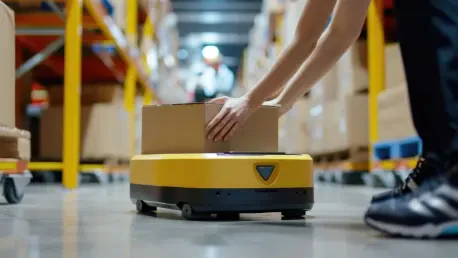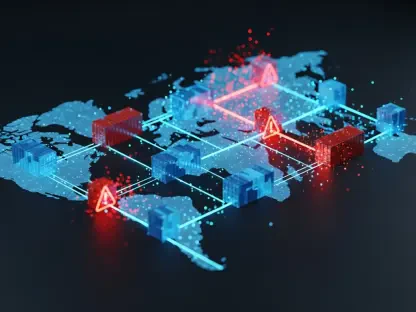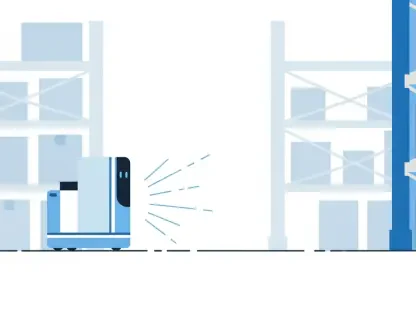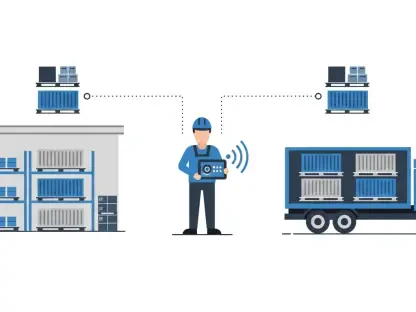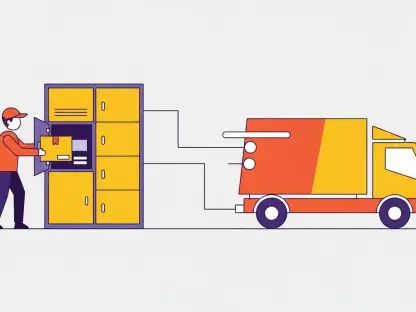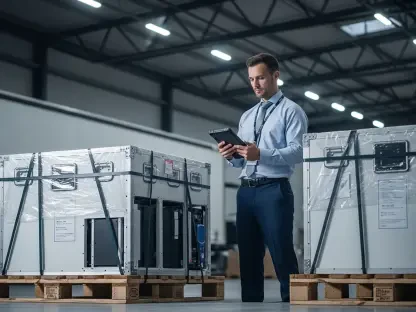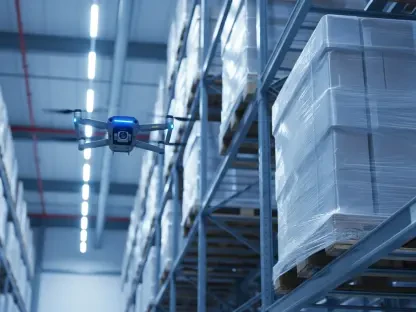In today’s fast-paced world of warehousing, the demand for higher efficiency and precision is reaching unprecedented levels. A prominent UK redistributor, the Company Shop Group, is addressing these challenges by integrating AI-powered robotics in partnership with Dexory, a solution provider specializing in real-time warehouse visibility and automation. This technological advancement was implemented in CSG’s Barnsley warehouse to enhance inventory accuracy and optimize product flow, solving the issue of delays caused by stock level inaccuracies once and for all.
Unveiling the Technological Framework
AI-powered warehouse robotics operate under the fundamental principles of autonomous navigation and seamless integration with existing systems. Dexory’s solution offers transformative capabilities, enabling the real-time management of diverse surplus stocks, including food, homeware, and personal goods. The system’s role in the broader technological landscape is vital, as it stands at the intersection of logistics, artificial intelligence, and robotic automation—fields shaping the future of warehousing with continuous innovation.
Exploring Dexterous Features
Smart Navigation Technologies
Among the many features, autonomous navigation and path planning stand out, allowing robots to move without human intervention while analyzing their surroundings for optimal paths. Such intelligent systems diminish the likelihood of collisions and boost overall operational efficiency. This technological marvel brings forth precision in stock handling, crucial for maintaining smooth product distribution within the warehouse infrastructure.
Real-time Data Utilization
Another defining feature is real-time data processing integral to inventory management efforts. AI-driven platforms provide live priority lists and dispatch updates, ensuring constant oversight of warehouse operations. The immediate identification of discrepancies through these autonomous scans ensures swift resolution, mitigating previous constraints tied to stock inaccuracies and delayed dispatch actions.
Innovations Driving Change
The field of robotics has seen remarkable advancements and shifting trends in recent years. New innovations render warehouses more automated, transforming them into smart ecosystems where AI and robotics harmoniously coexist. Companies like Dexory are spearheading such initiatives, pushing the industry toward greater operational efficiency and sustainability goals. This trend aligns closely with CSG’s aspirations to eliminate surplus waste while optimizing resource utilization.
Diverse Application of Robotics
AI-powered robotics find utilization in various sectors beyond warehousing, providing streamlined inventory solutions that cater to specialized needs. These intelligent systems are increasingly deployed in industries with critical logistics requirements and have witnessed notable success stories across regions. Dexory’s implementation in CSG serves as a prime example of technology redefining surplus product redistribution by addressing industry-specific challenges.
Challenges in Technological Integration
Nonetheless, integrating AI-powered robotics into fruitful operations still presents certain obstacles. Regulatory constraints and technical limitations can impede wider adoption, requiring patience and refined development efforts. While companies continue to tackle these challenges head-on, ongoing enhancements in regulatory frameworks and technological capabilities may alleviate them, fostering broader acceptance.
Future Outlook and Directions
Progress continues as AI-powered robotics are projected to undergo significant transformations. Future prospects may include enhanced autonomy, sharper analytics, and leaner operations tailored to specific industry needs. Companies also anticipate refined environmental benefits stemming from AI integration, underscoring technology’s role in sustainability endeavors for years to come.
Synthesis and Evaluation
The integration of AI-driven robotics within CSG reflects a pivotal shift toward efficient surplus product management. While the technology presents unmistakable growth potential, it also demonstrates considerable impact in improving warehouse operations through superior accuracy and data agility. This represents a new era in logistic technologies, promising advancements that will shape industries in innovative ways.
